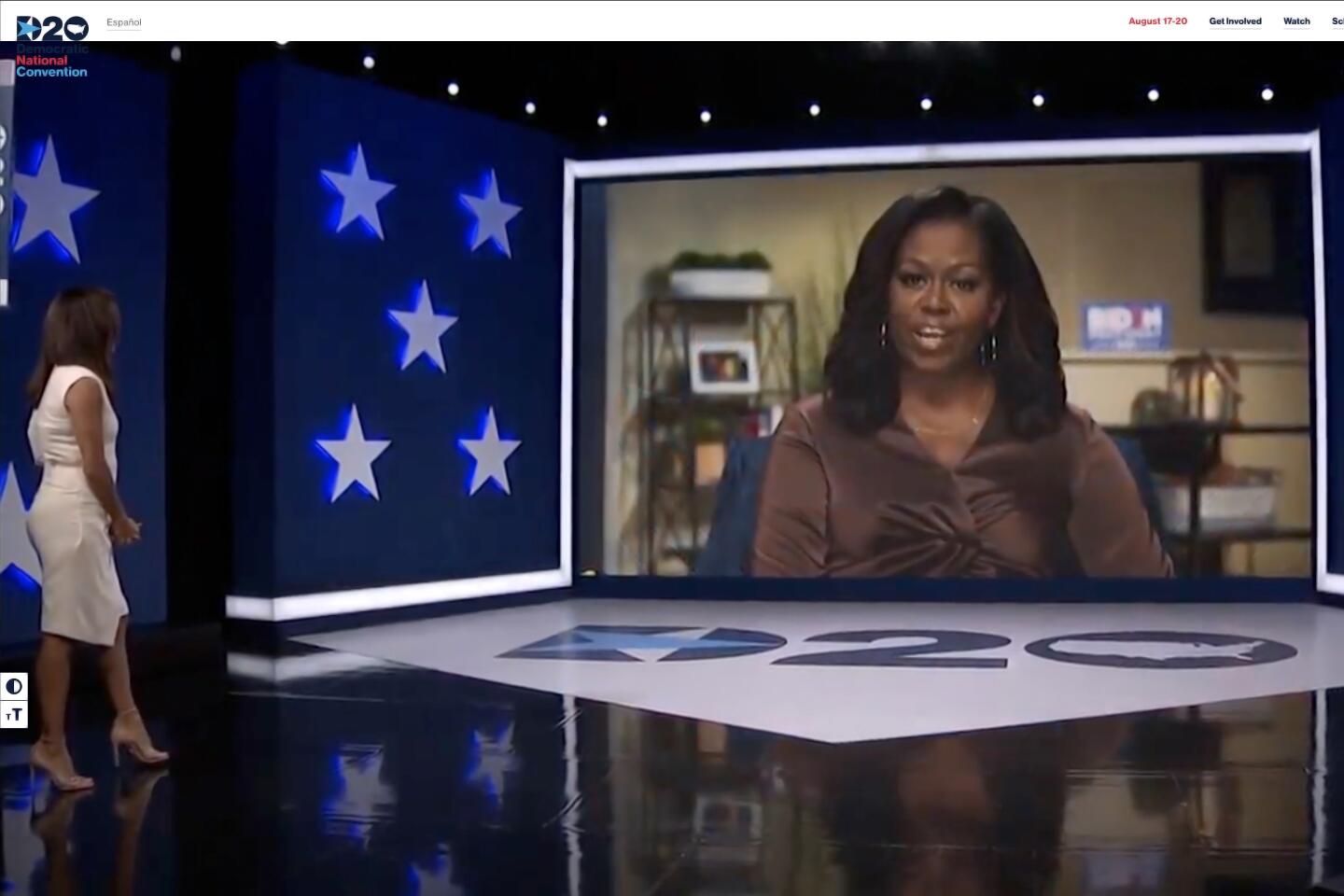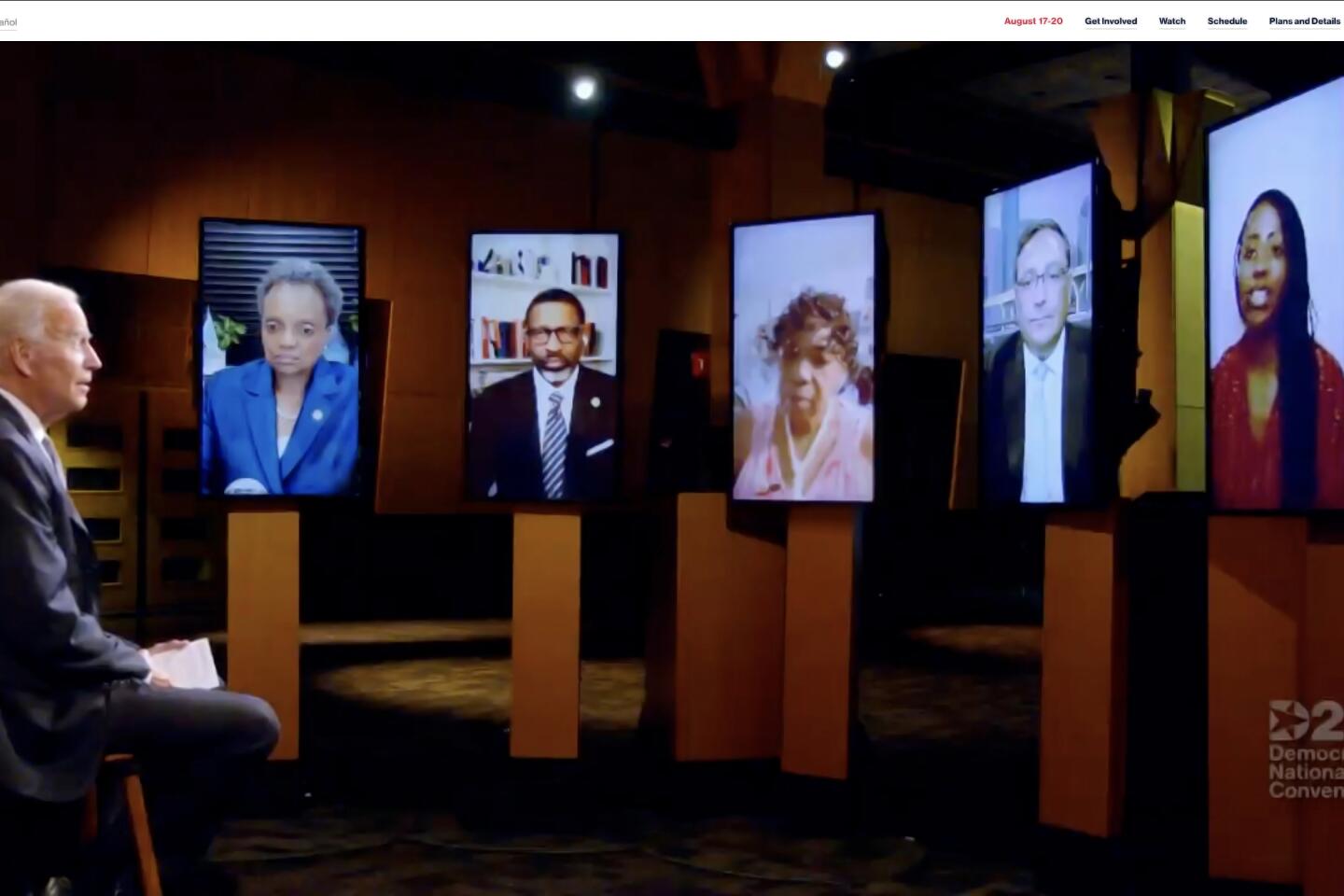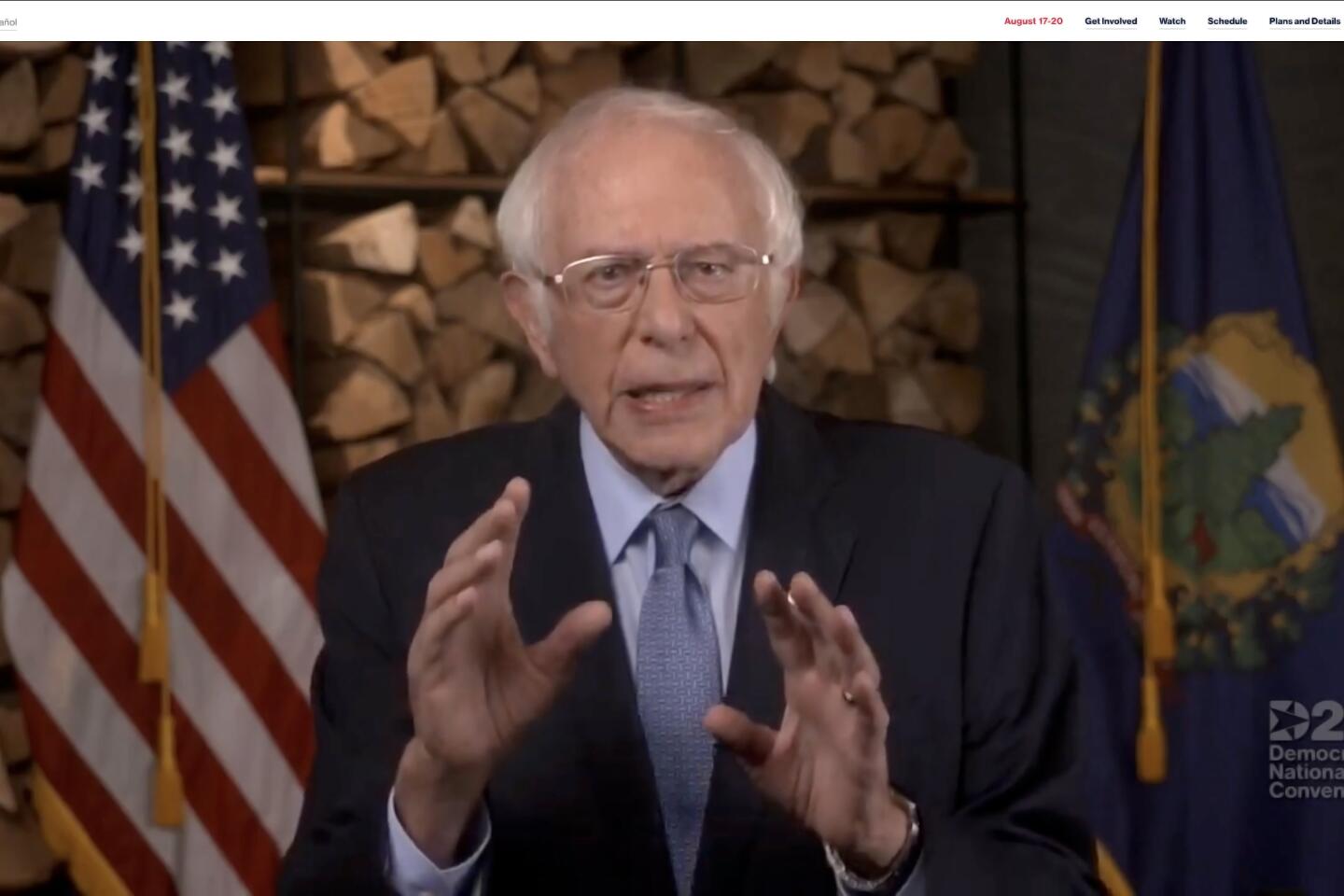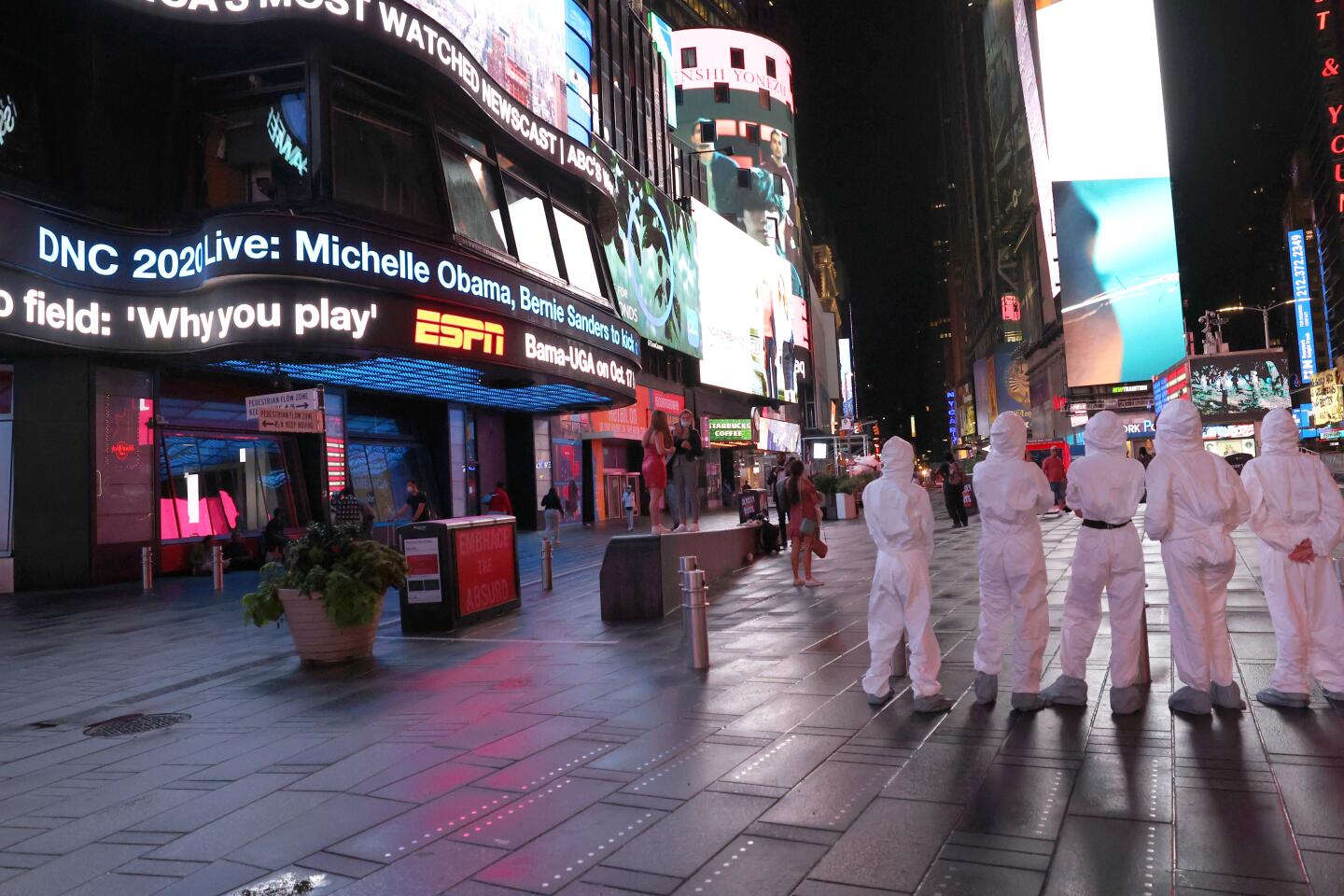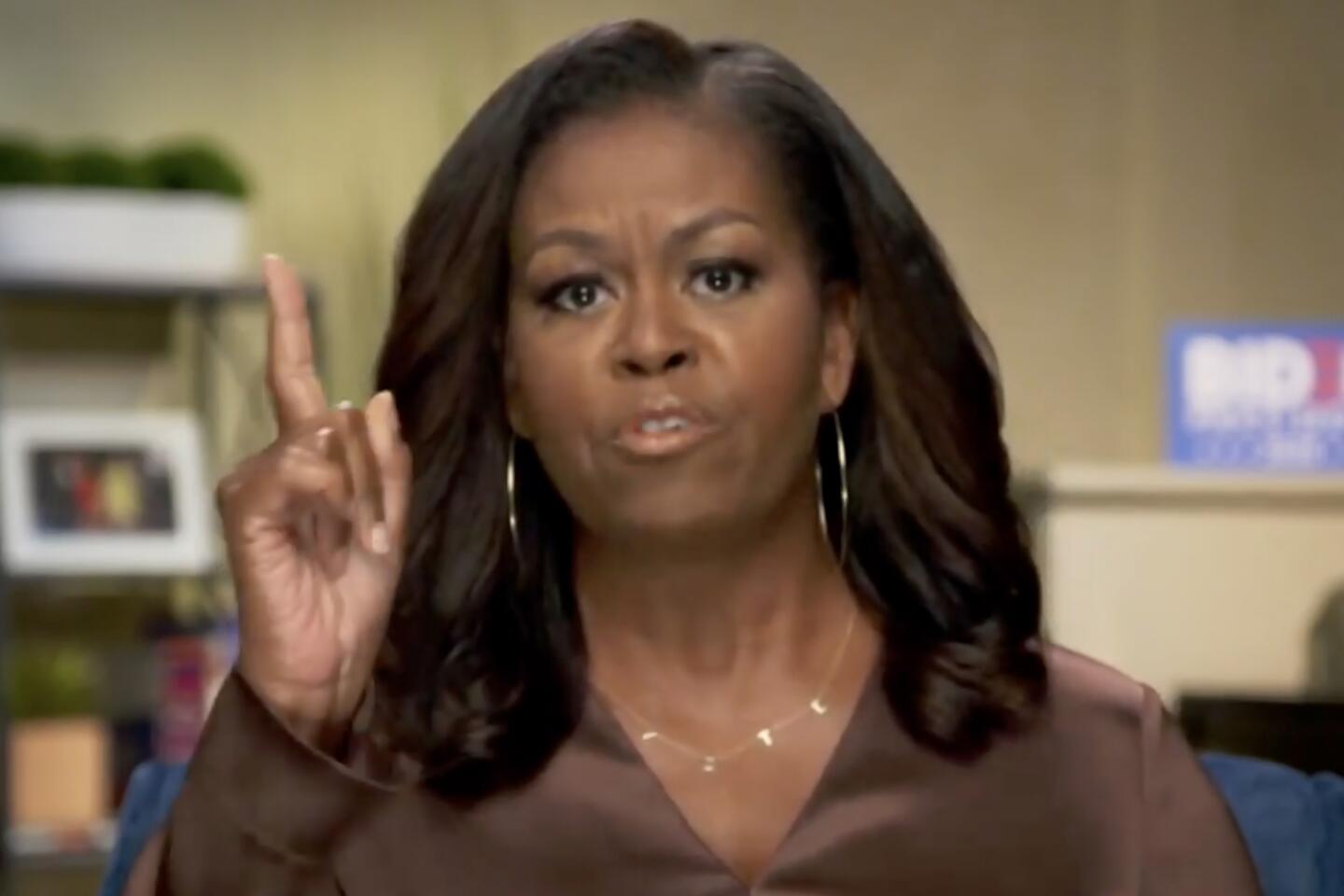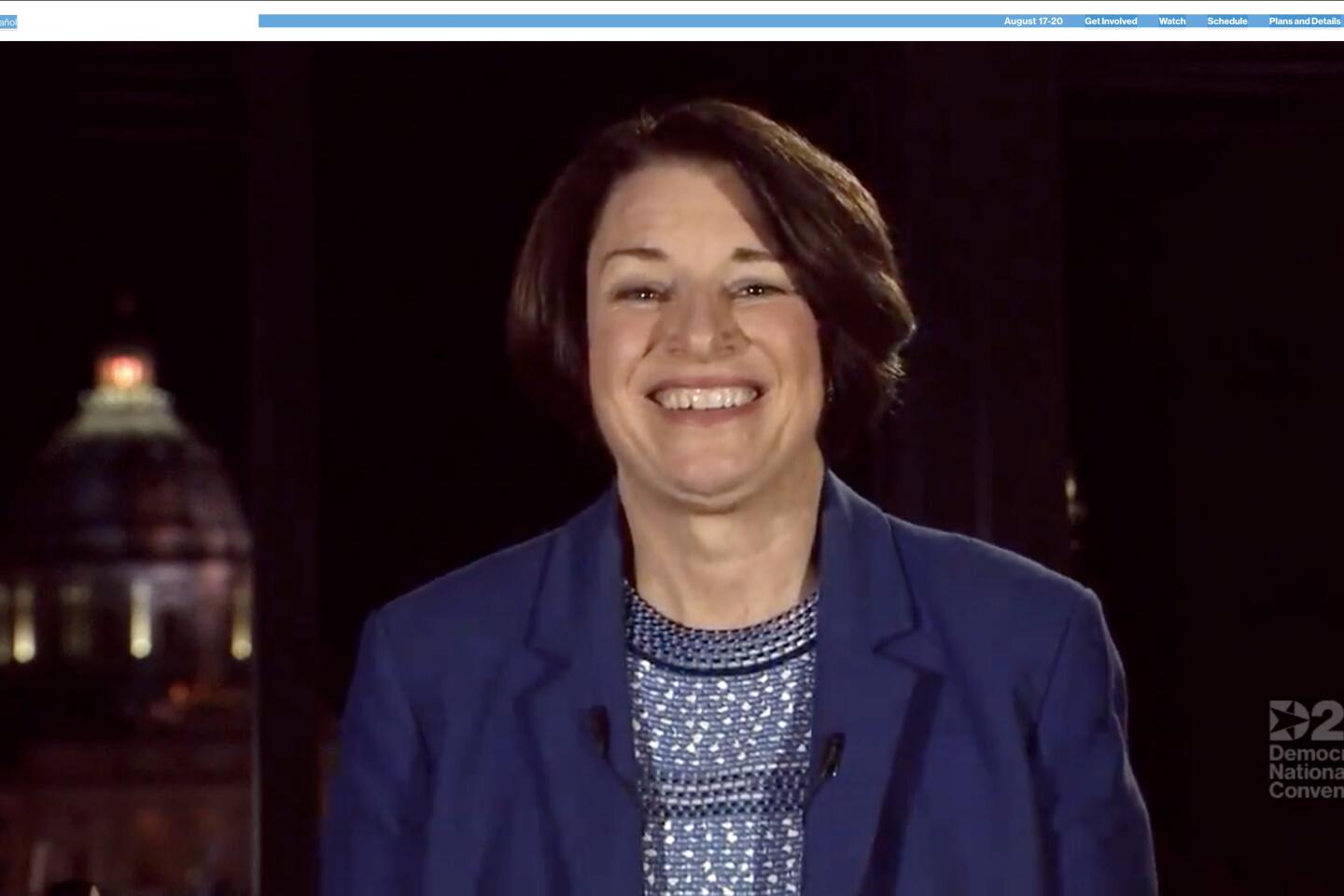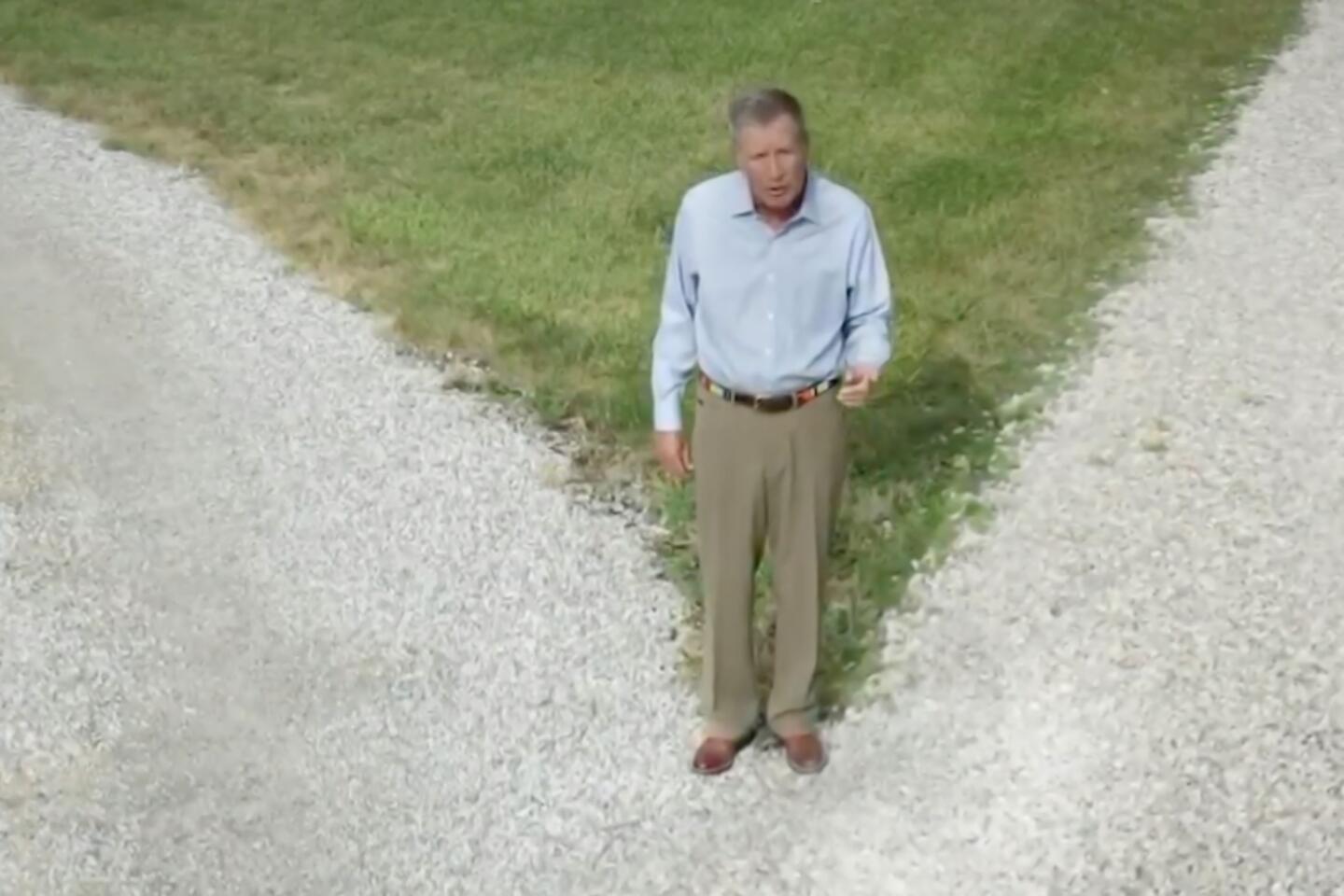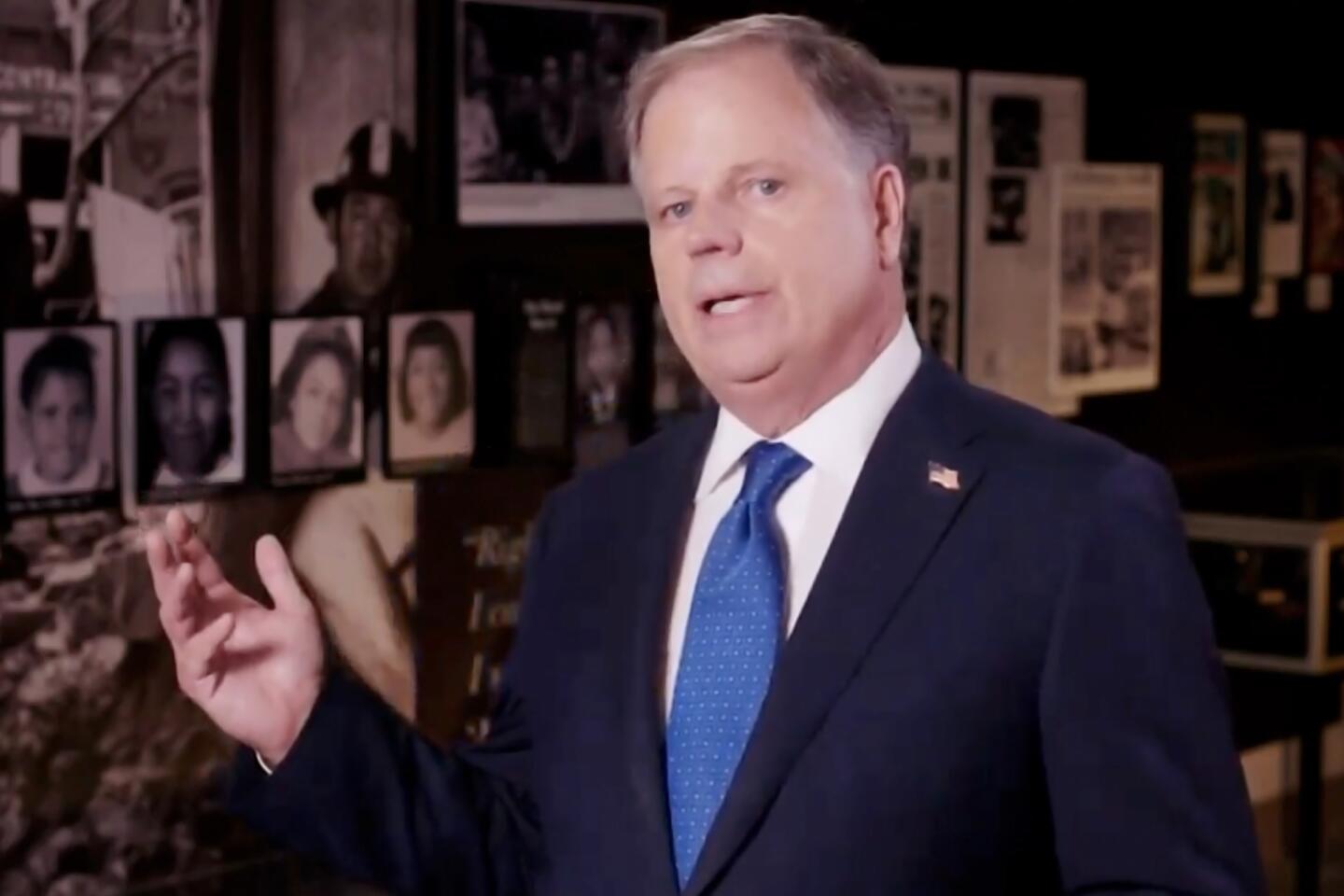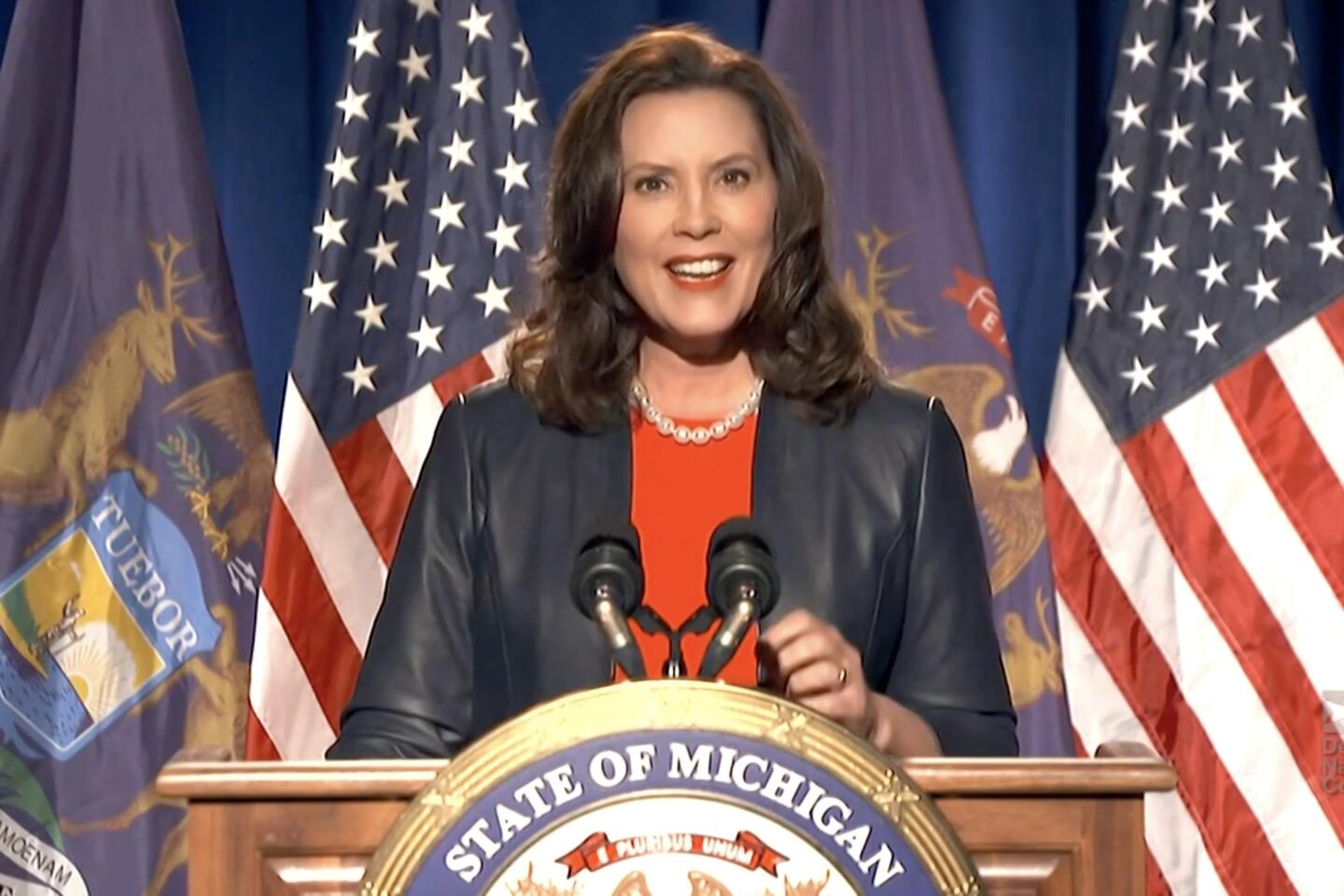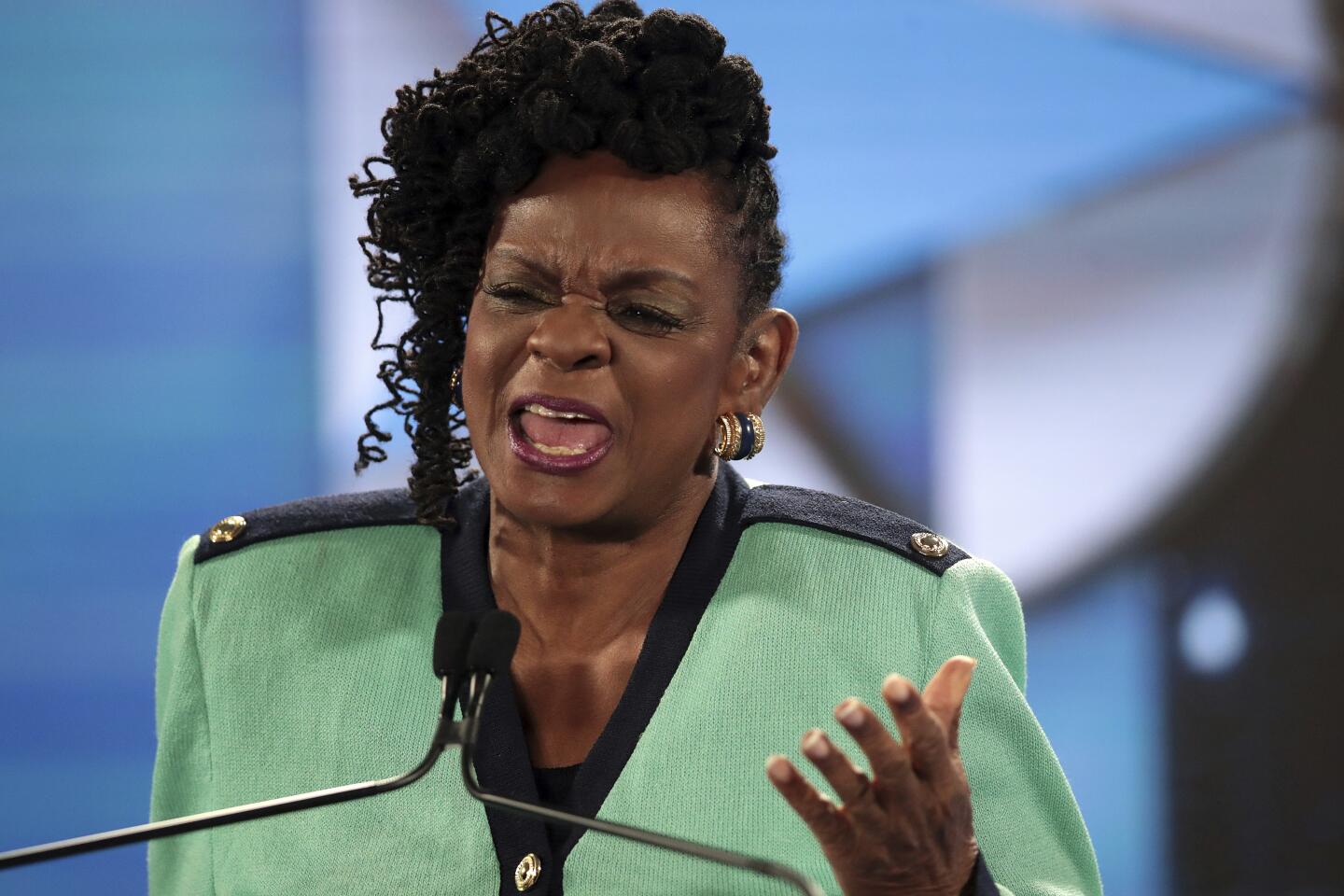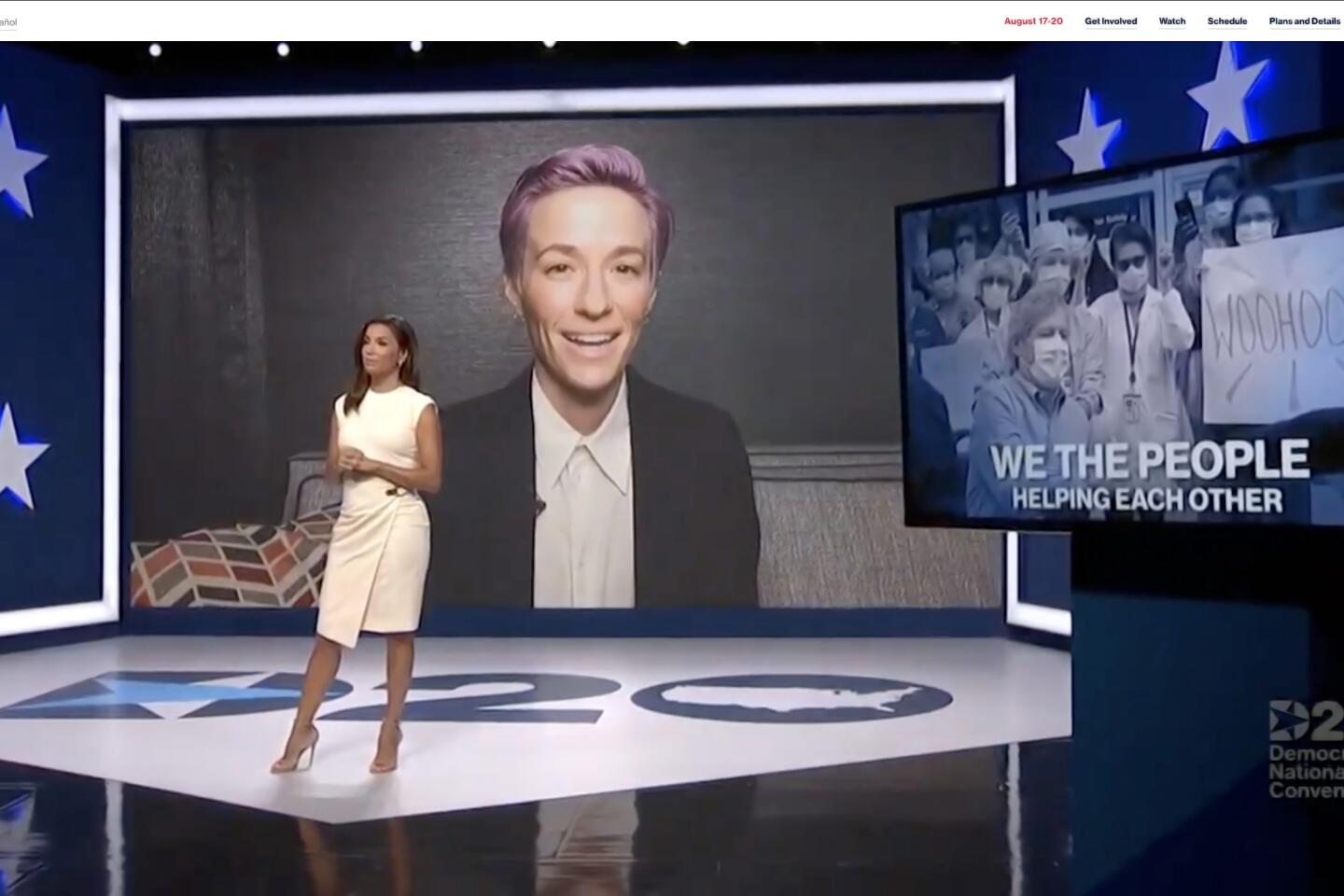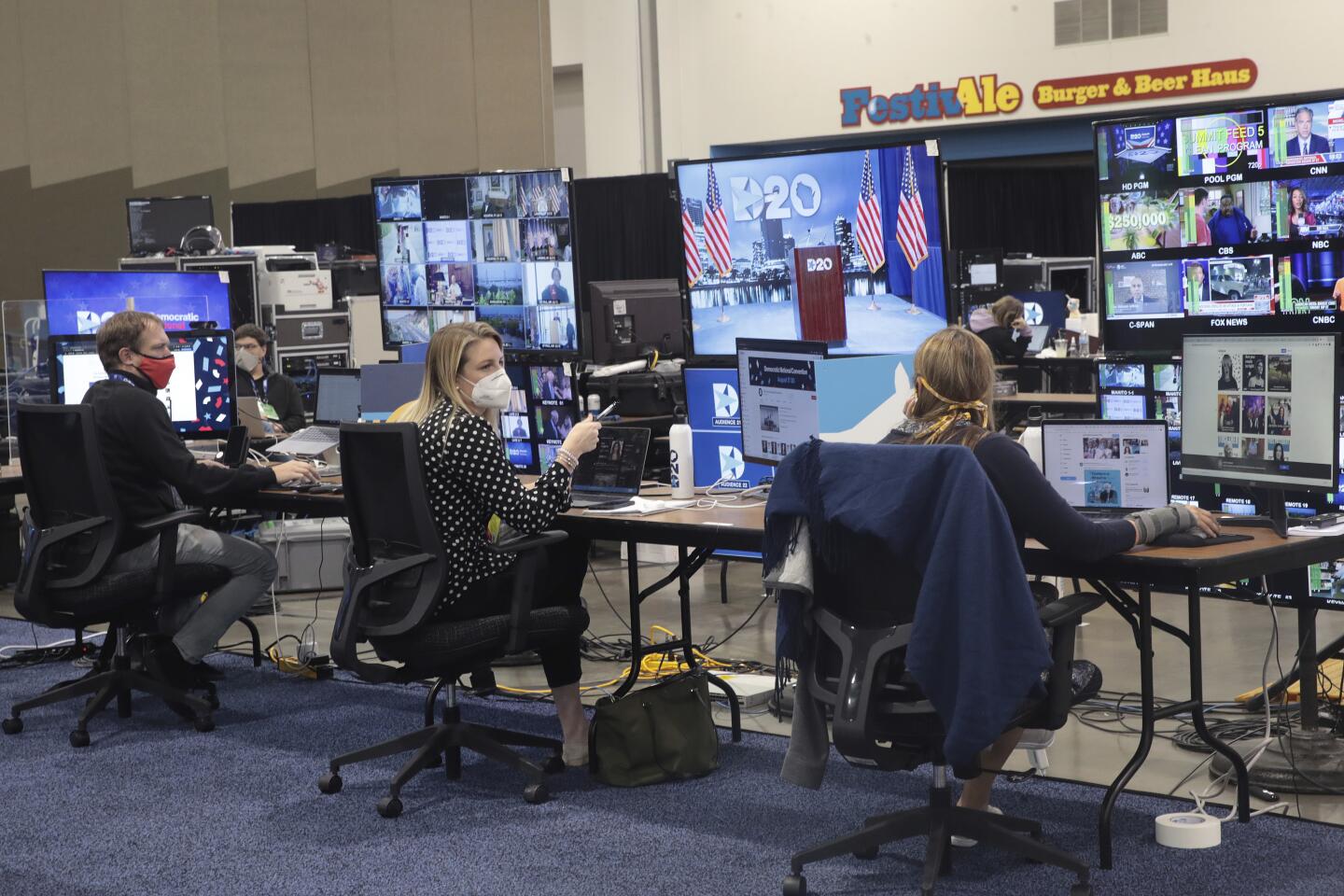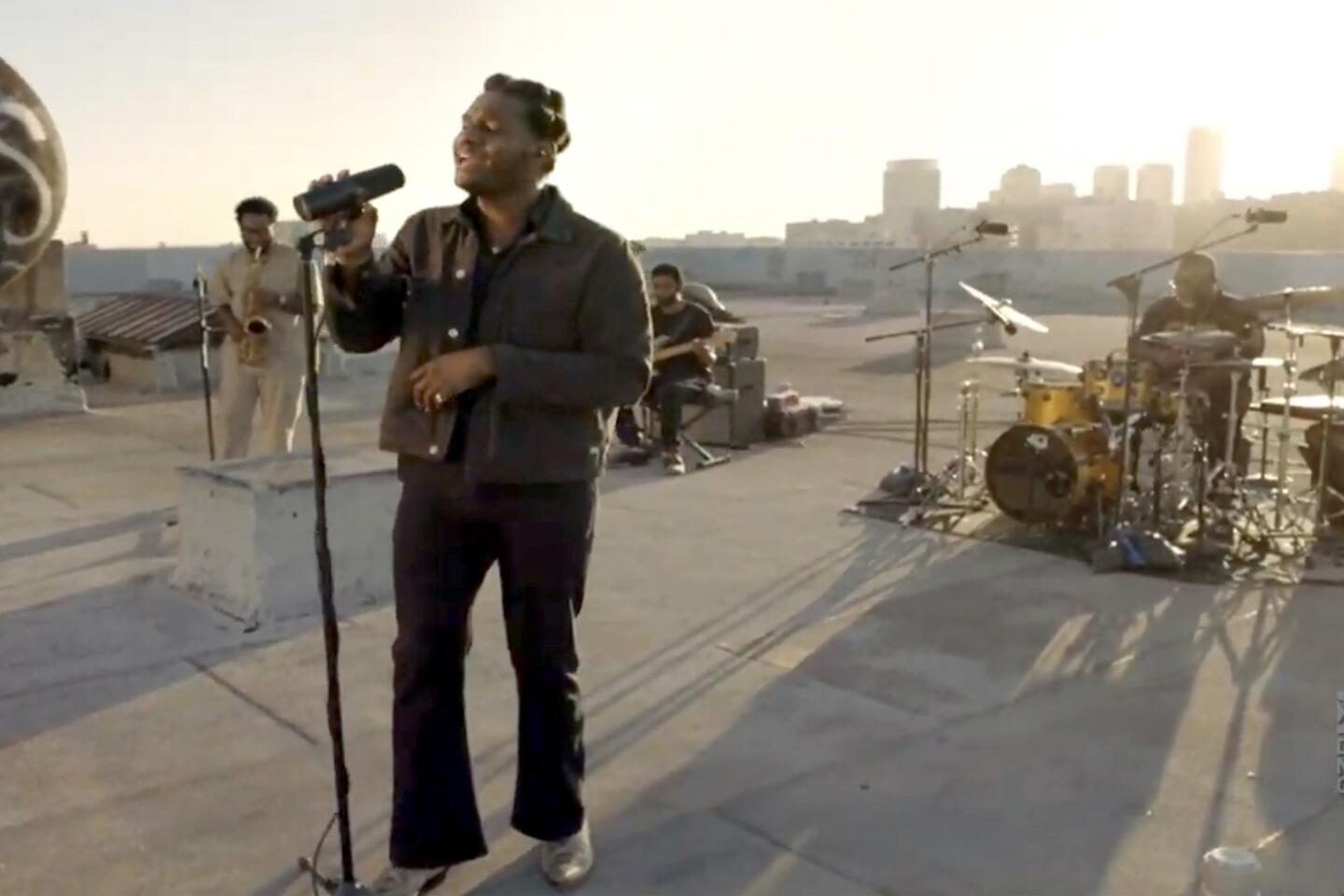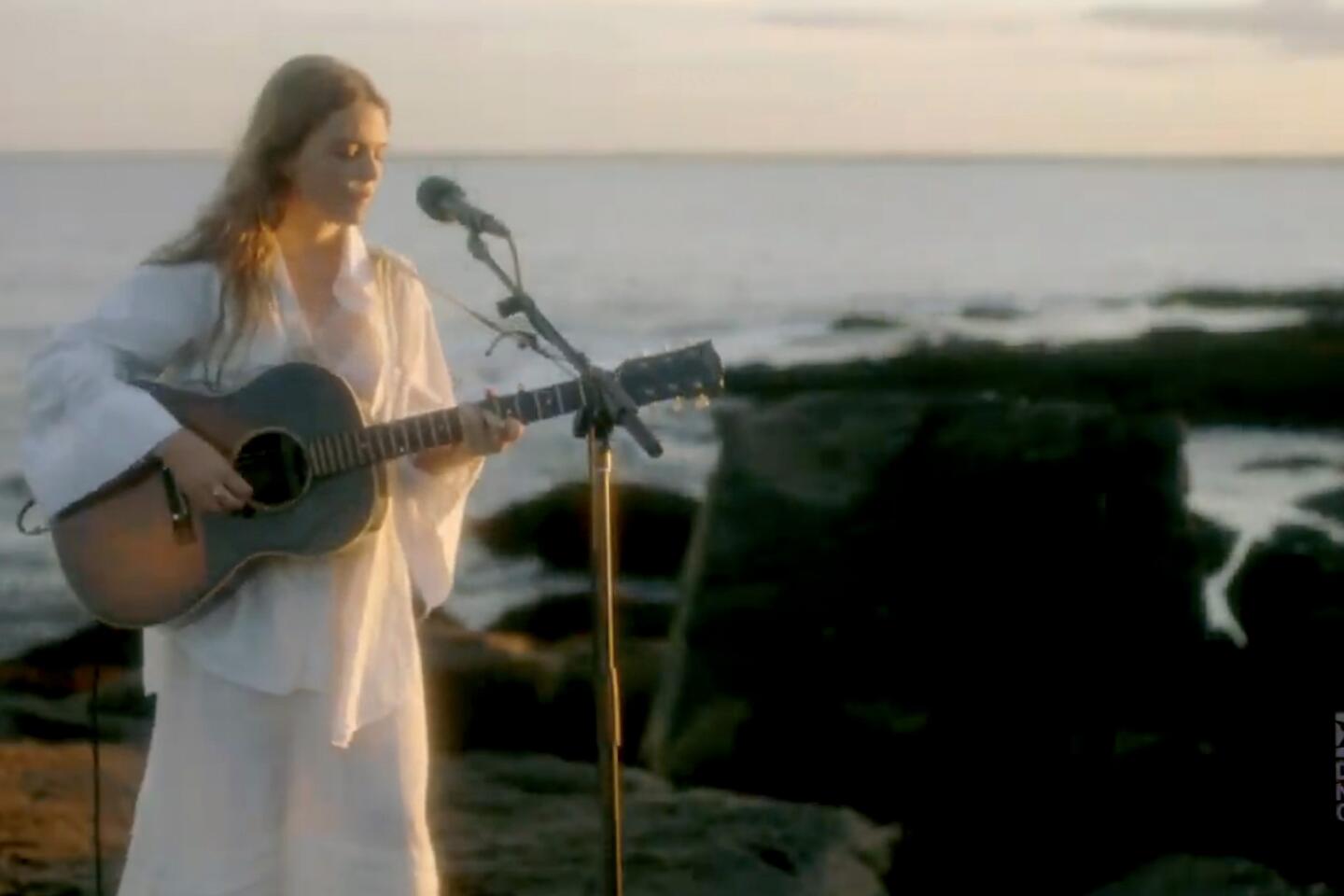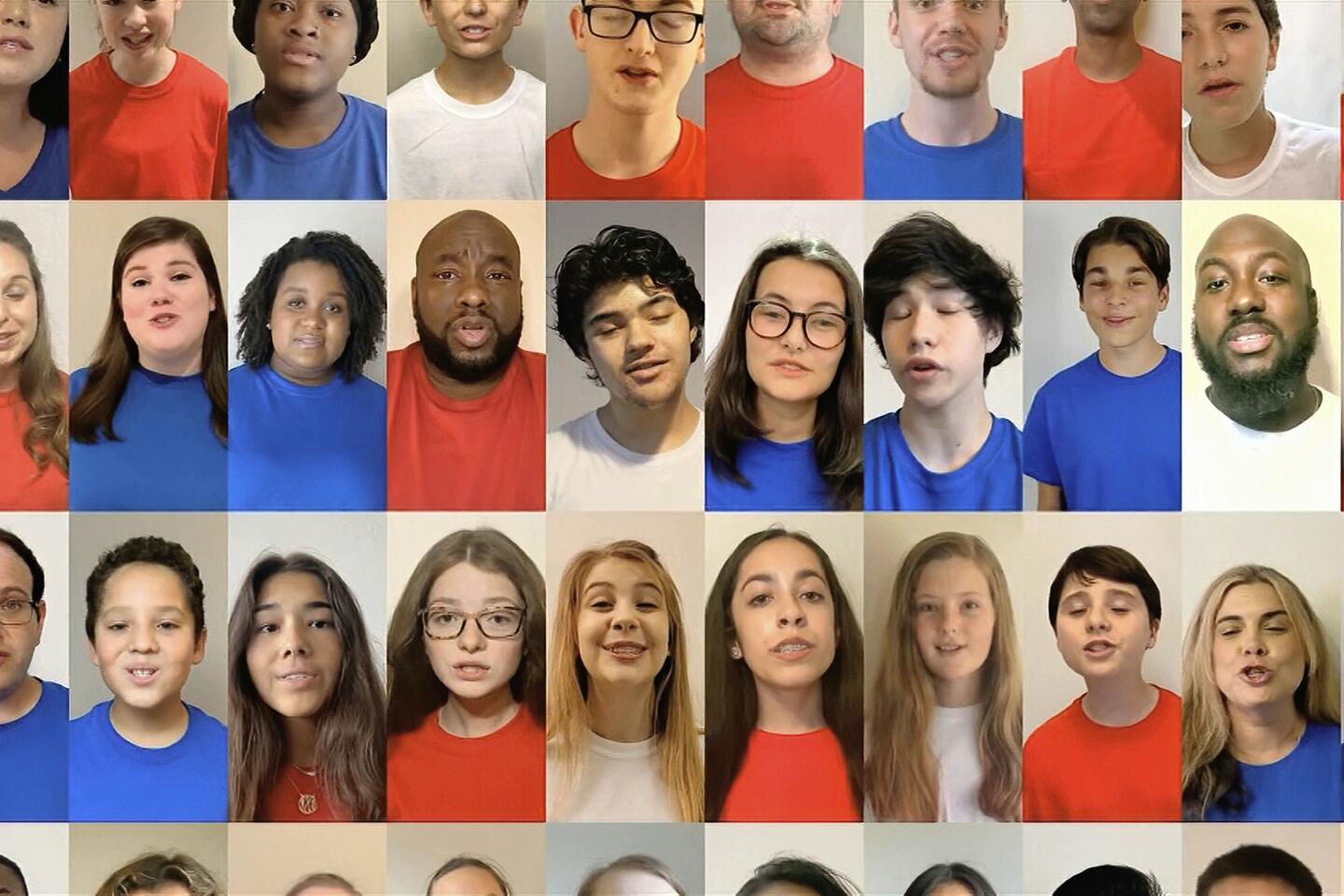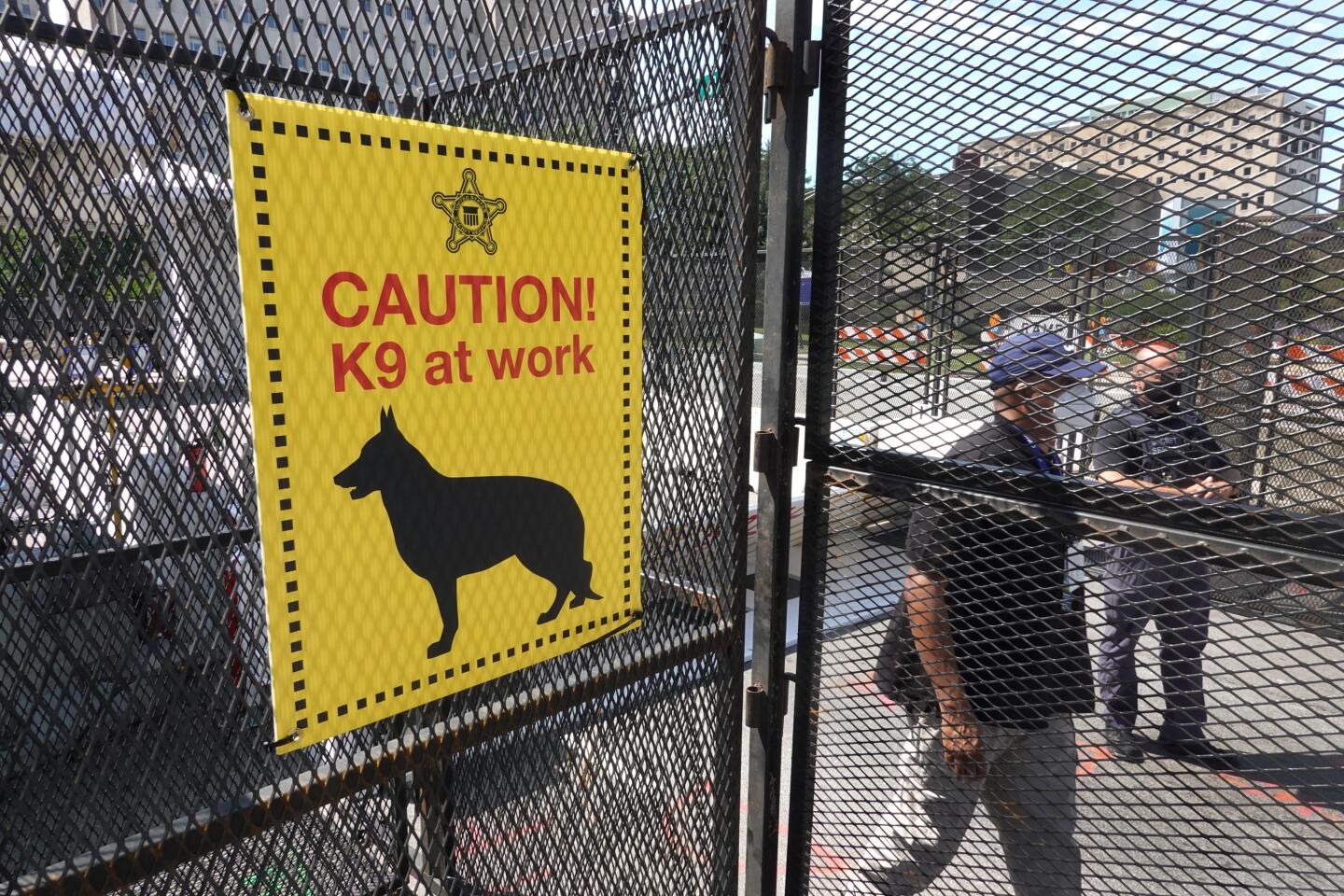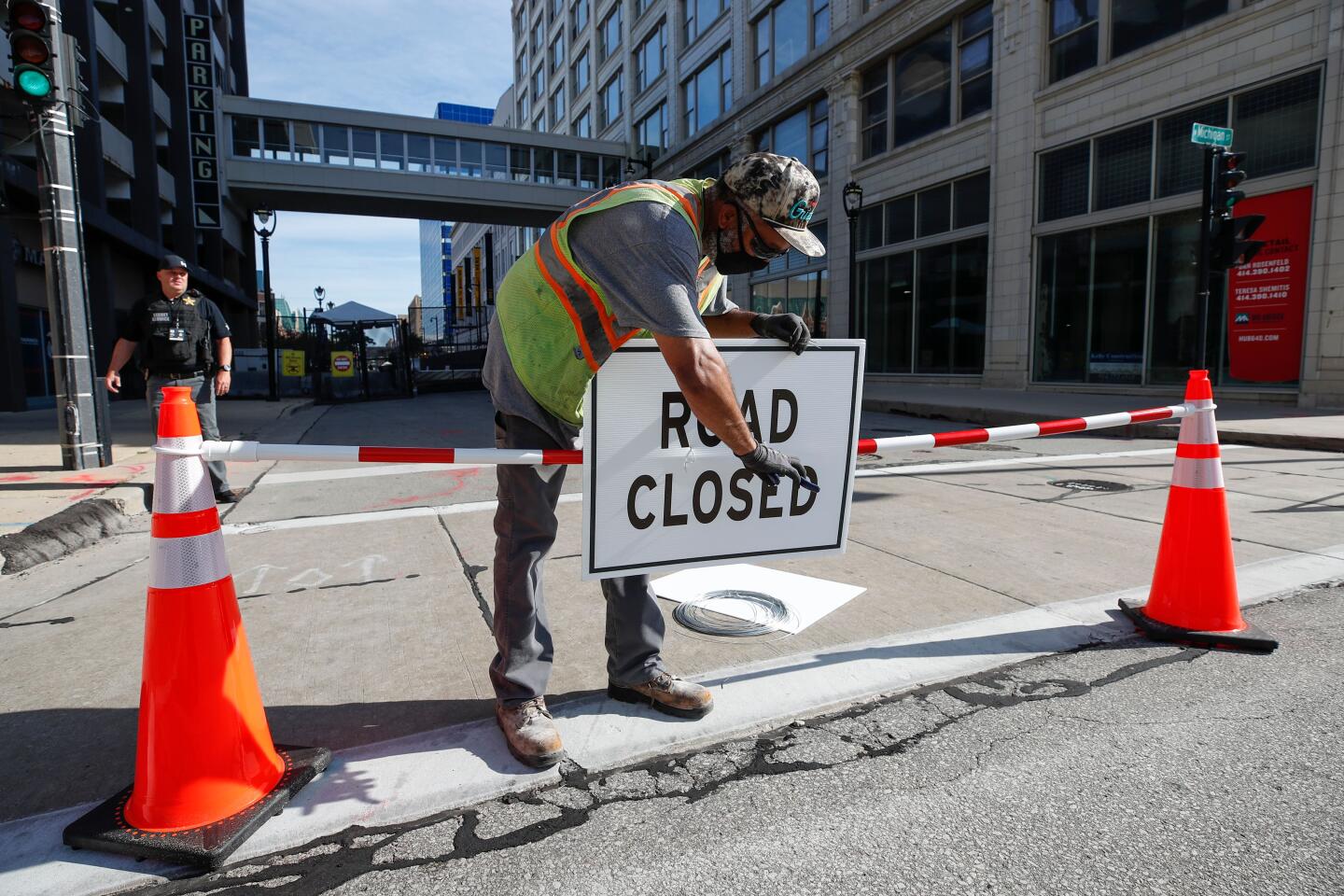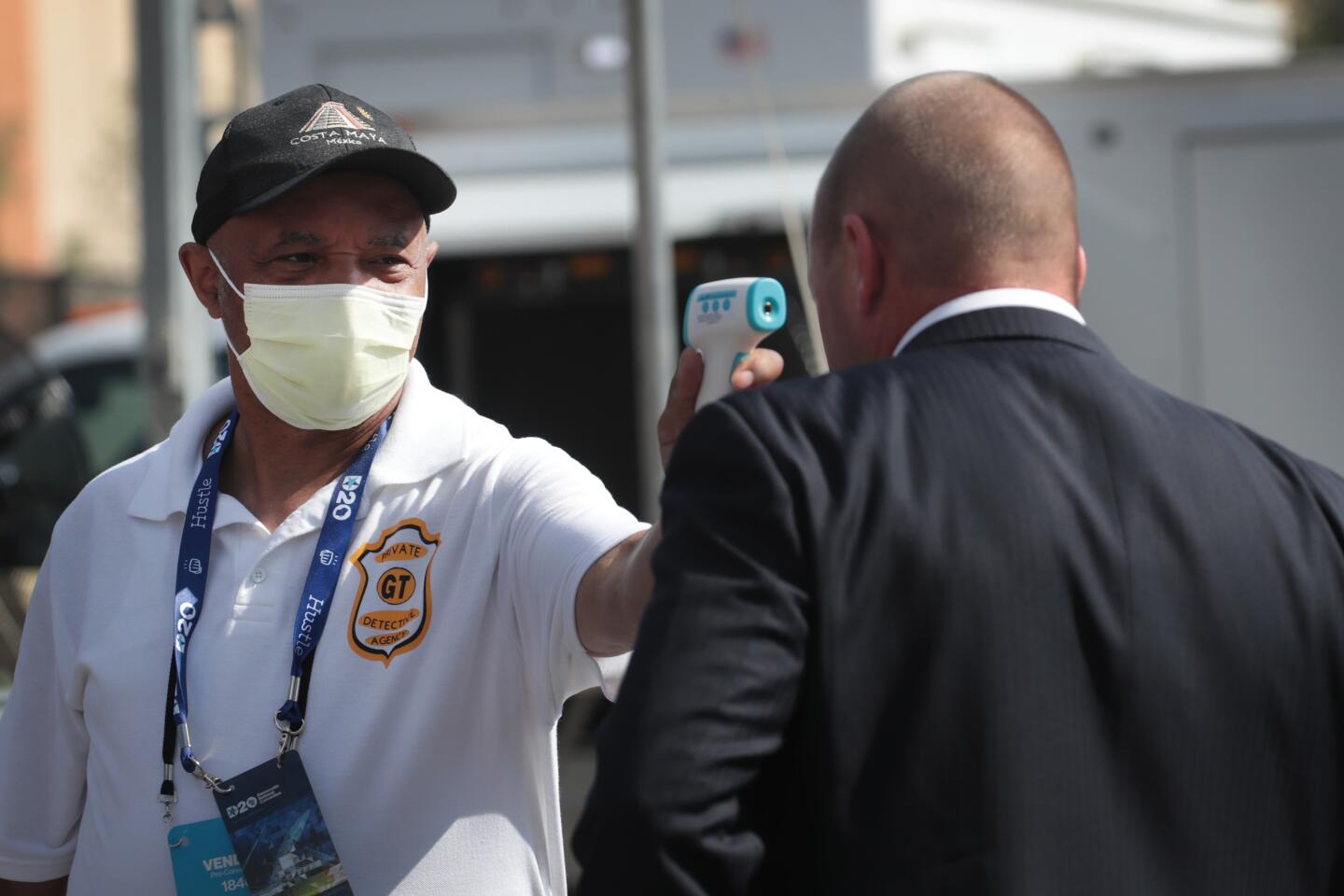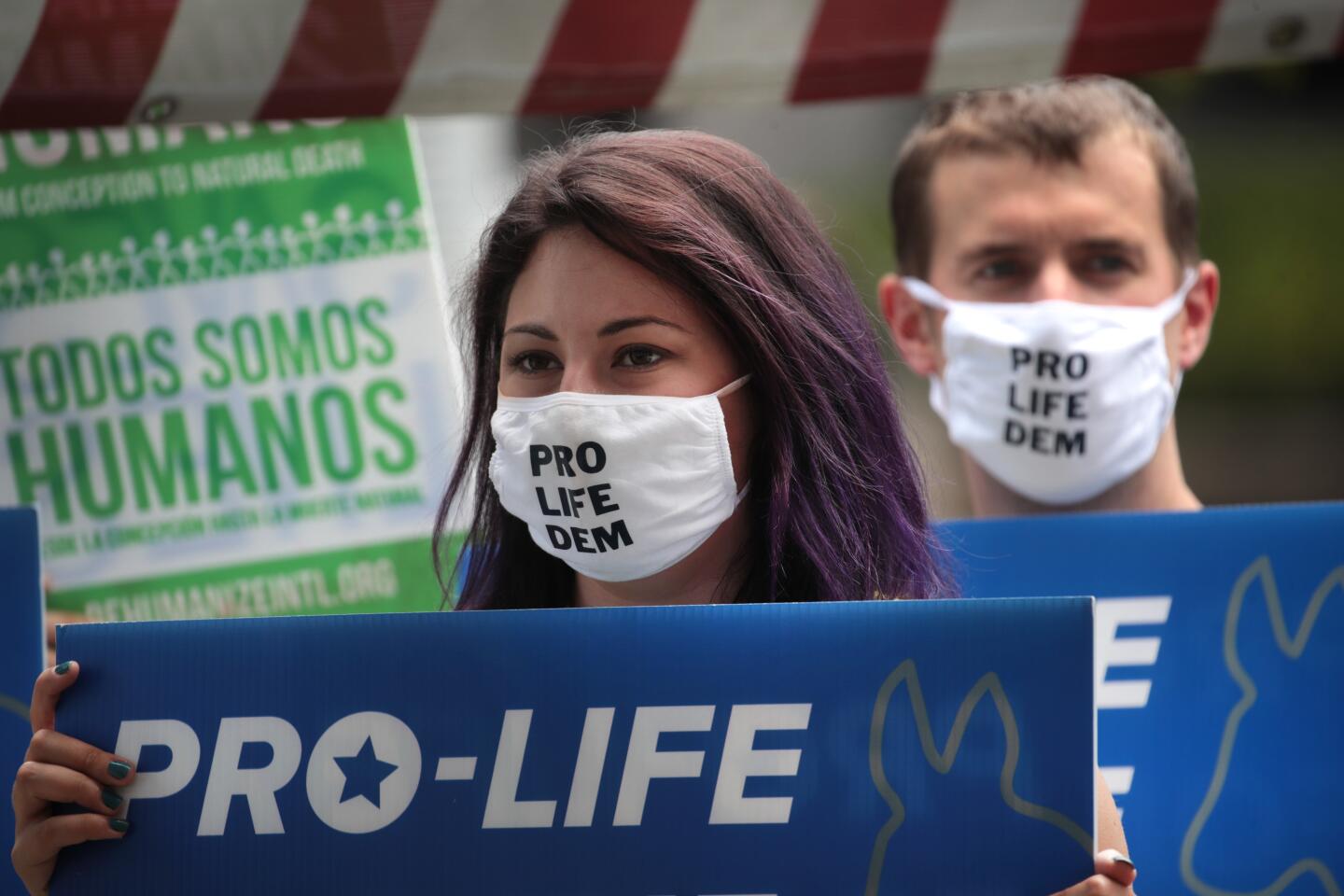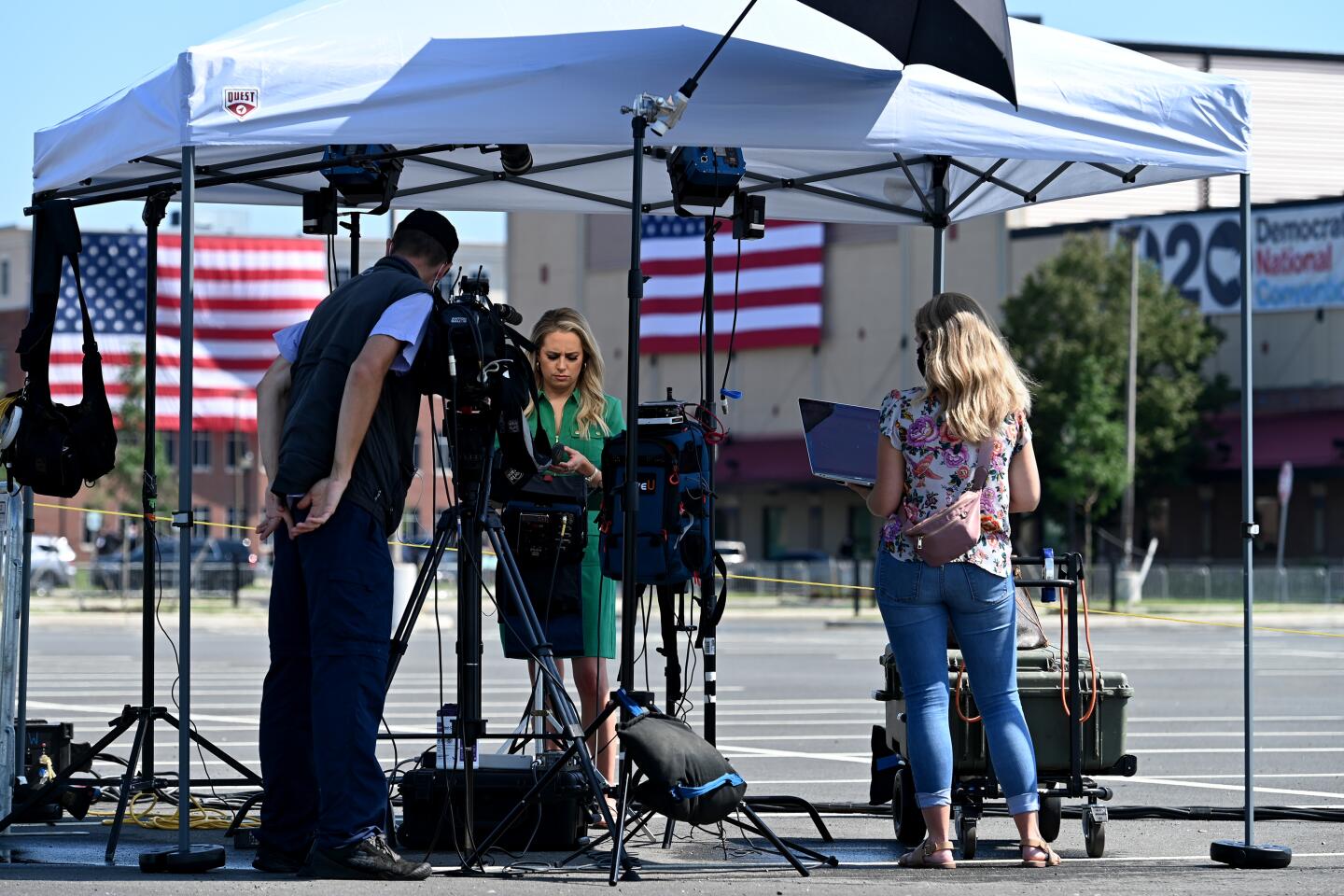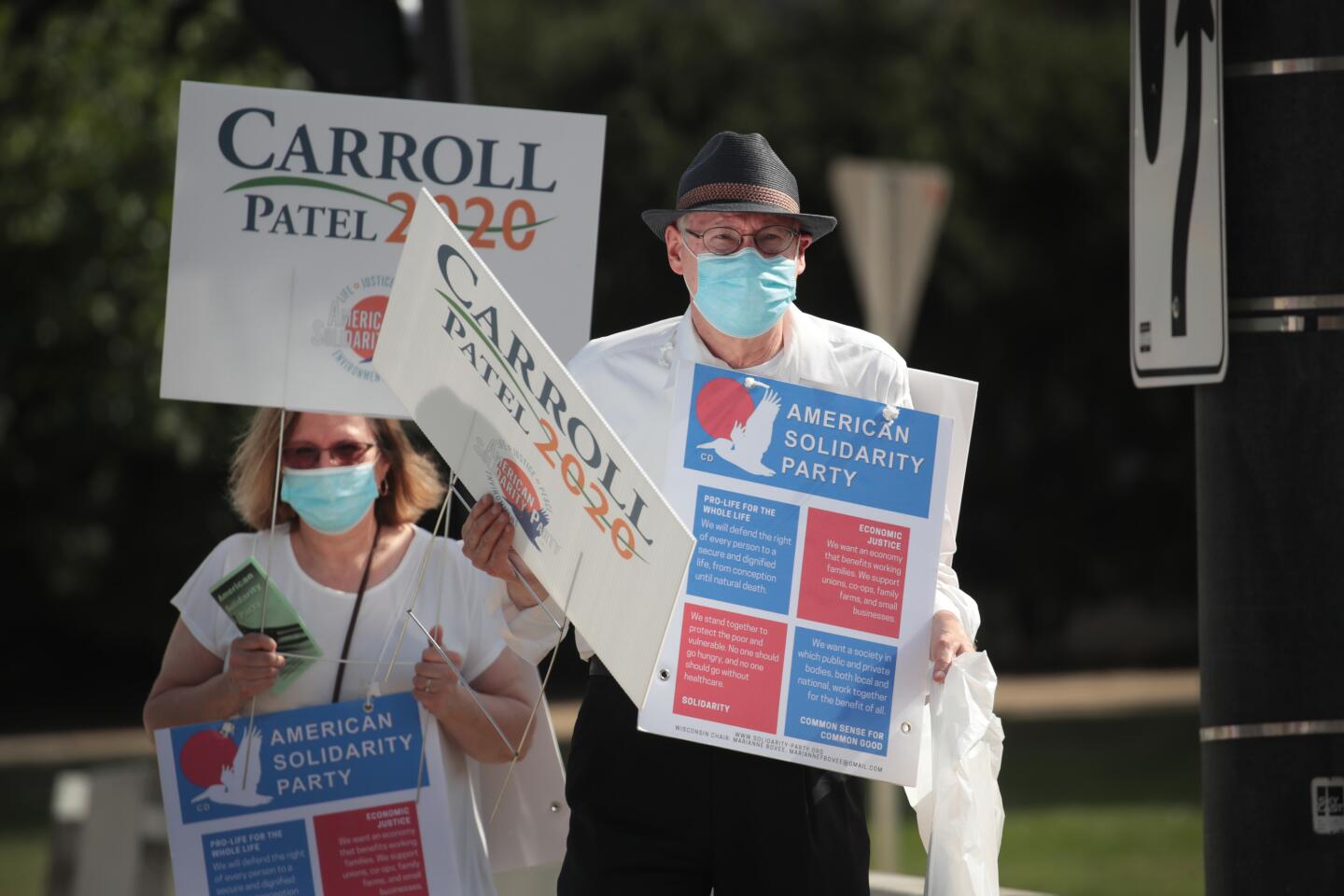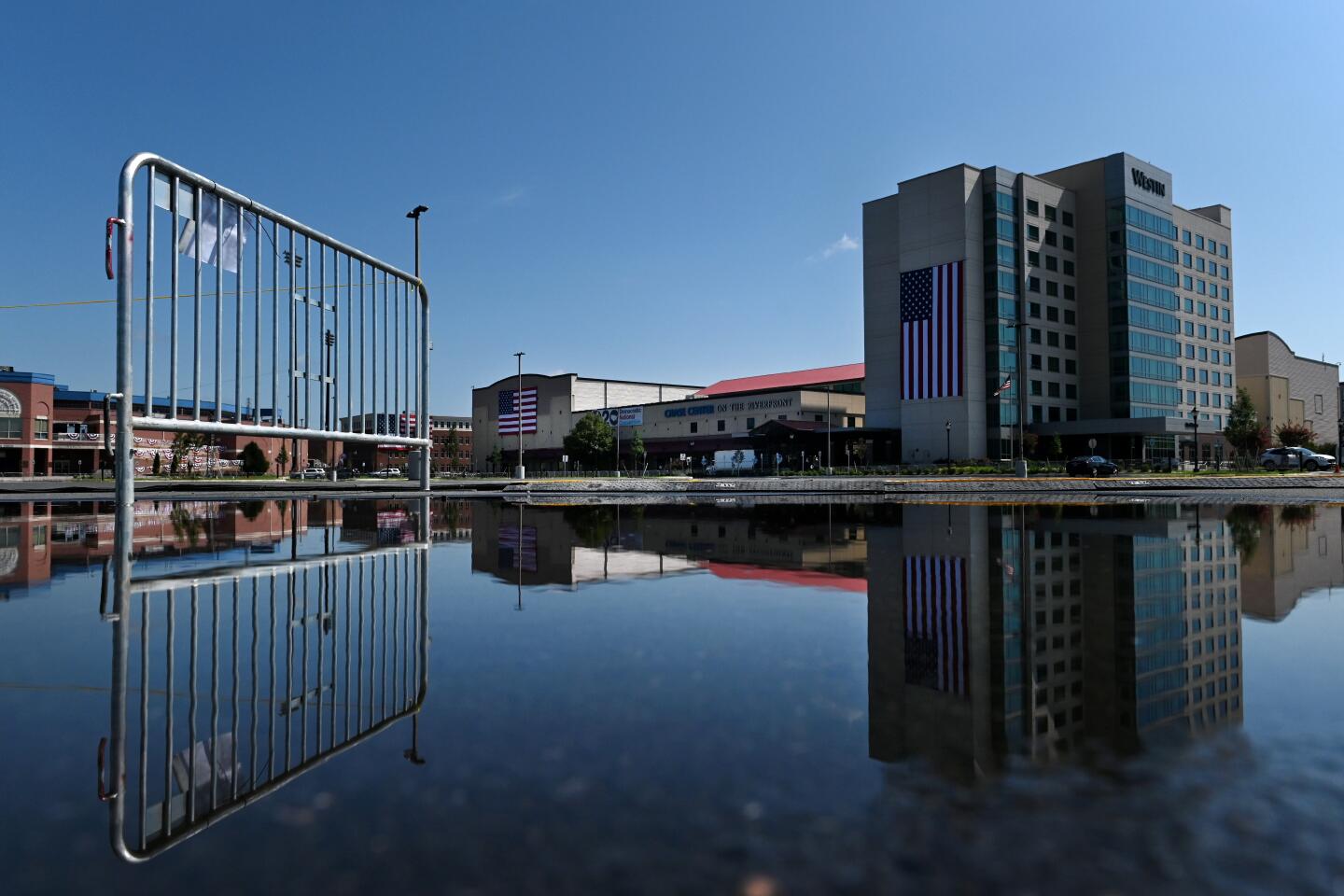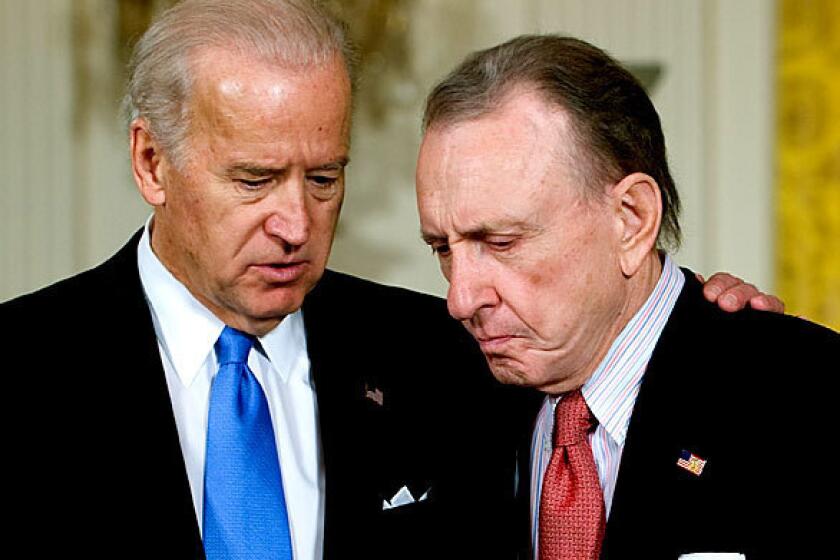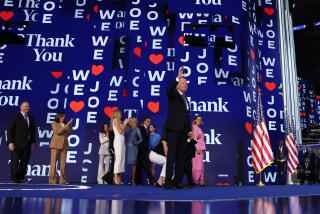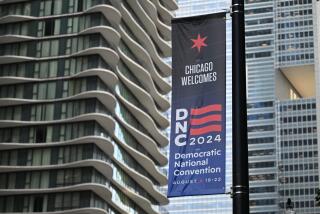Democrats worry that Biden is unknown to many. The convention aims to change that
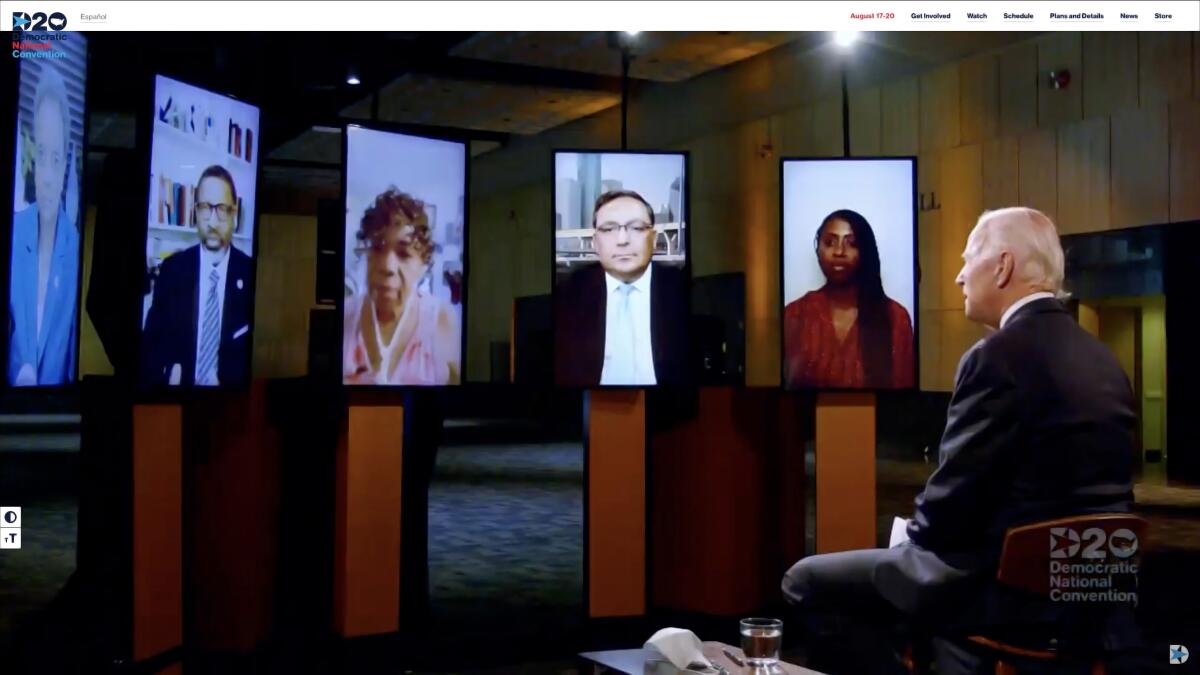
- Share via
WASHINGTON — Soon after Joe Biden locked down the Democratic nomination this spring, his supporters, who until then hadn’t had the money to do much general-election research, began to examine his strengths and weaknesses in a matchup against Donald Trump.
They quickly discovered that despite his four decades in public office, voters didn’t know a whole lot about the former vice president.
“There’s a general sense that Joe Biden is a decent person,” and voters know he was President Obama’s vice president and “some of the general contours of his personal tragedies,” said Steve Schale, the head of Unite the Country, the pro-Biden super-PAC. “But there wasn’t a lot of detailed painting in the lines of the basic story.”
As veteran Democratic pollster Peter Hart puts it, Biden is “well known, but not known well.”
Monday night, from Michigan Gov. Gretchen Whitmer talking of Biden’s effort to save autoworkers’ jobs to Michelle Obama declaring “I know Joe” and praising him as “a profoundly decent man” who “listens” and “will tell the truth,” the Democrats began a four-day convention effort to fill in the portrait in terms favorable to their presumptive nominee.
Speakers vied to say how long they had known Biden — 30 years in the case of former Ohio Gov. John Kasich, 40 in the case of Sen. Doug Jones (D-Ala.) — and to deliver snippets of his biography or praise of his character, often in ways designed to draw a contrast with Trump or to respond to questions that voters have raised in focus groups or other research done by Democratic groups.
Biden’s longtime ally, Rep. James Clyburn (D-S.C.), talked of his empathy, which campaign aides believe is a key contrast with Trump.
“We need a president who understands both profound loss and what it takes to bounce back,” he said.
New York Gov. Andrew Cuomo emphasized a different side of the former vice president’s character. “Joe Biden is what I call American tough,” he said, “tough in the best way.”
At a Democratic Convention held entirely online, the party — and several GOP stars — accuses Trump of failing to effectively control the coronavirus.
That line, echoed by other speakers who emphasized that Biden could not be “pushed around” was almost surely no accident.
In research that the moderate Democratic group Third Way has conducted this spring and summer among swing voters in battleground states, “the number one thing they’re looking for is leadership” to get the country out of crisis, said Lanae Erickson, the group’s senior vice president for social policy.
For many voters, that quality had three main components, Erickson said: Strength, empathy and a willingness to listen to experts.
“People already believe Biden has the last two,” she said, but “the thing they were really wondering was whether he has the strength” to lead.
The effort to flesh out voters’ image of Biden is not the only theme of the convention, of course, but it could be key to the virtual gathering’s ultimate success. That’s because even though Biden went into the week with a significant lead over President Trump, strategists in both parties expect the race to tighten as election day nears. Most presidential contests do, although there are some notable exceptions.
For five months, the campaign has been largely eclipsed by the COVID-19 pandemic, which has dominated public attention and soured many voters on Trump’s presidency. Biden has benefited greatly from this stretch, able to hang back, focus on building a highly successful fundraising operation and mostly stay out of the spotlight while Trump hogged it to his detriment.
But with the next two weeks of back-to-back conventions, followed a month later by the scheduled start of presidential debates, the contest will move into a new phase.
Hart, quoting the English philosopher Thomas Hobbes, predicts that final sprint to November will be “nasty, brutish and short.”
In that intense campaign phase that lies ahead, Biden’s relatively unfocused image — a product of long years as a senator from a small state followed by eight in the role of sidekick to a popular president — could become a significant problem.
Trump and his allies almost surely will spend much of their convention next week trying to paint a negative picture of Biden, much as the Democrats on Monday night began four days of intense Trump-bashing.
So Democrats face the need to define their candidate in the eyes of voters before the opposition can.
The Biden campaign and allied outside groups already have begun to do that with their advertising. One ad that aired extensively in Michigan emphasized Biden’s role in the economic recovery effort in Obama’s first term.
Another ad stressed his attachment to family, focusing on his consistent practice early in his career of taking the train from Washington back to Delaware every night to see his two young sons before they went to sleep.
Both those parts of Biden’s biography figured in Monday night’s program.
Biden‘s biography also figured in the speeches by a set of prominent Republicans, including Kasich; Christine Todd Whitman, the former governor of New Jersey; and Meg Whitman, the party’s unsuccessful 2010 candidate for governor of California. They were there in part to give Republican voters who have soured on Trump a sense of permission to cast a ballot for Biden.
They also talked about Biden’s longtime willingness to reach across party lines.
Joe Biden has made much of his ability to reach across the partisan divide, but the gap has widened since his years as a senator, and since Trump.
Adding urgency to the biographical effort is an element of the campaign that was spotlighted last week in a poll released by the nonpartisan Pew Research Center. When likely Biden voters were asked the main reason for their support, by far the most common reason, provided by more than half was a negative one: “He’s not Trump.”
For now, that’s been enough. But in a tighter race, if one develops, it might not be.
The worry among Democratic strategists — and the hope among some Republicans — is that negative motivation won’t generate the kind of large turnout Democrats will need if the race grows closer.
“The enthusiasm gap is real,” said Republican consultant Alex Conant, a former top aide to Sen. Marco Rubio (R-Fla.), noting polls that show Biden’s supporters significantly less excited about their candidate than Trump’s supporters are about theirs. “If the race tightens, the enthusiasm gap becomes a real problem.”
That could be particularly true among young voters, said Democratic pollster and strategist Cornell Belcher.
In 2016, younger voters, especially in Black and Latino communities, pushed against what many saw as a request to choose the lesser of two evils, Belcher said. That helped contribute to turnouts that fell below the levels Democratic presidential nominee Hillary Clinton needed in some key cities, including Detroit and Milwaukee.
Young voters “want to have something to vote for,” Belcher said.
He predicted that Biden has many qualities those voters will find attractive, but so far, he said, many of them have only a sketchy sense of that.
“This week,” he said, “is an opportunity for the Biden campaign to unpack that.”
Times staff writer Janet Hook contributed to this report.
More to Read
Get the L.A. Times Politics newsletter
Deeply reported insights into legislation, politics and policy from Sacramento, Washington and beyond. In your inbox three times per week.
You may occasionally receive promotional content from the Los Angeles Times.
